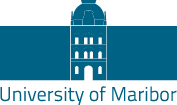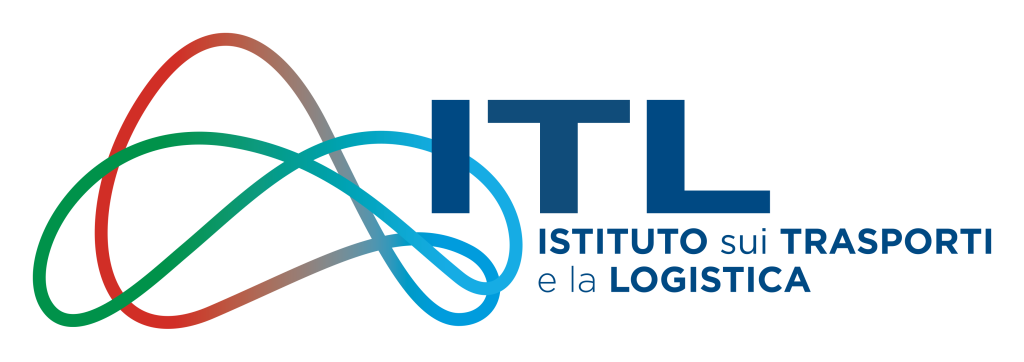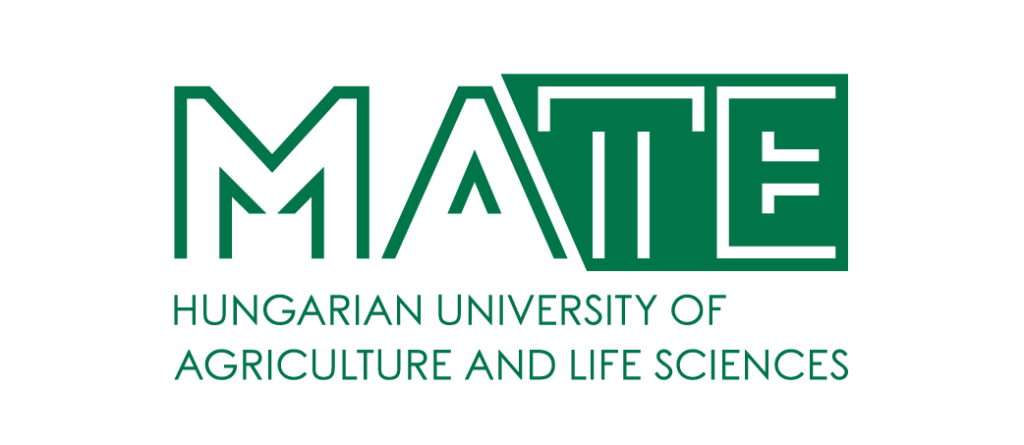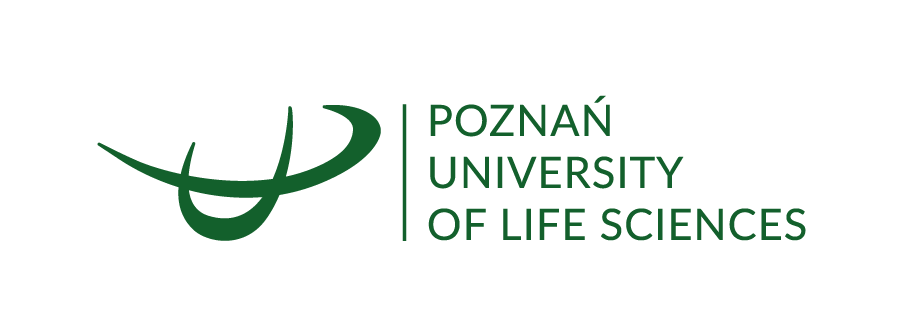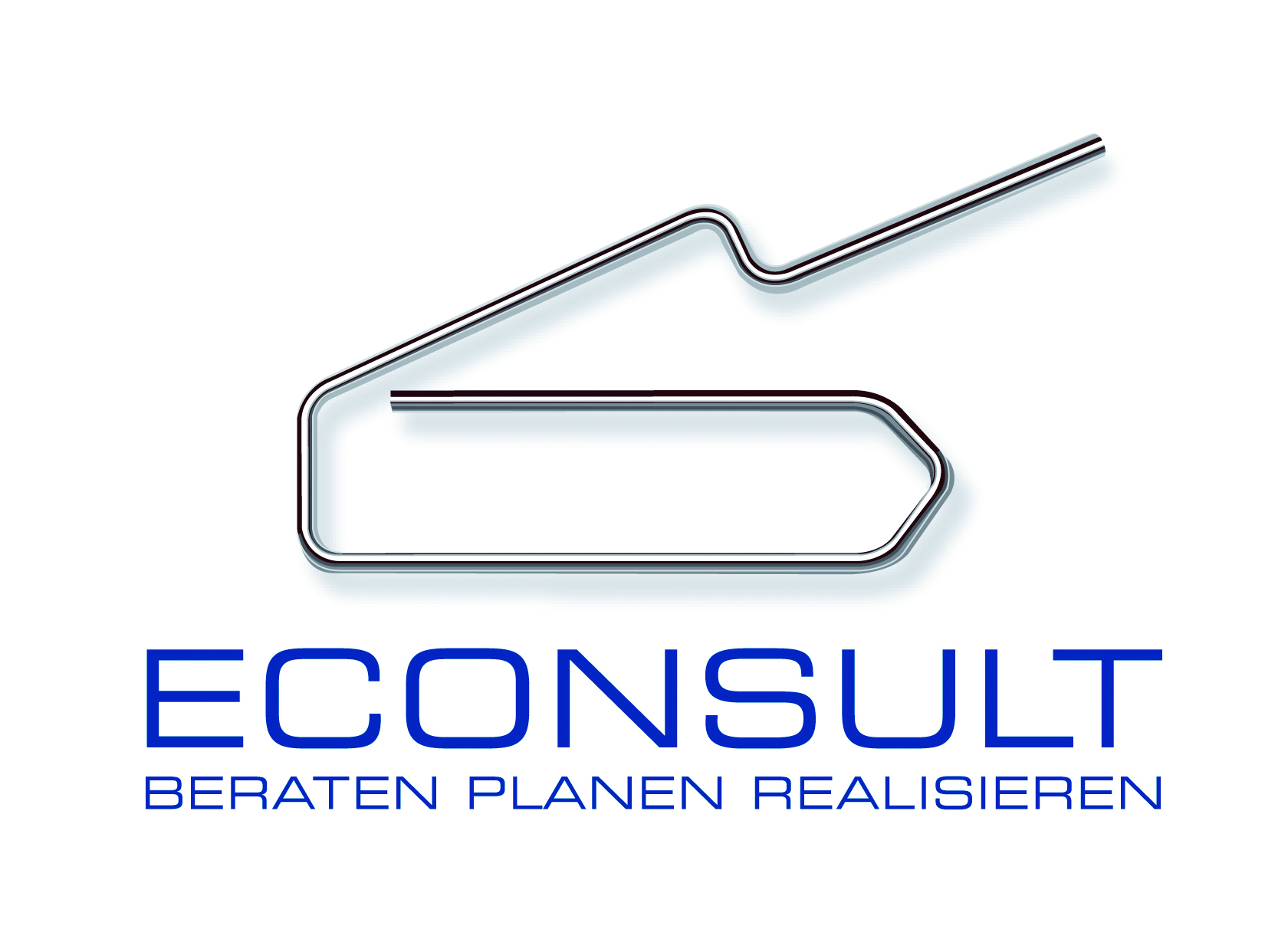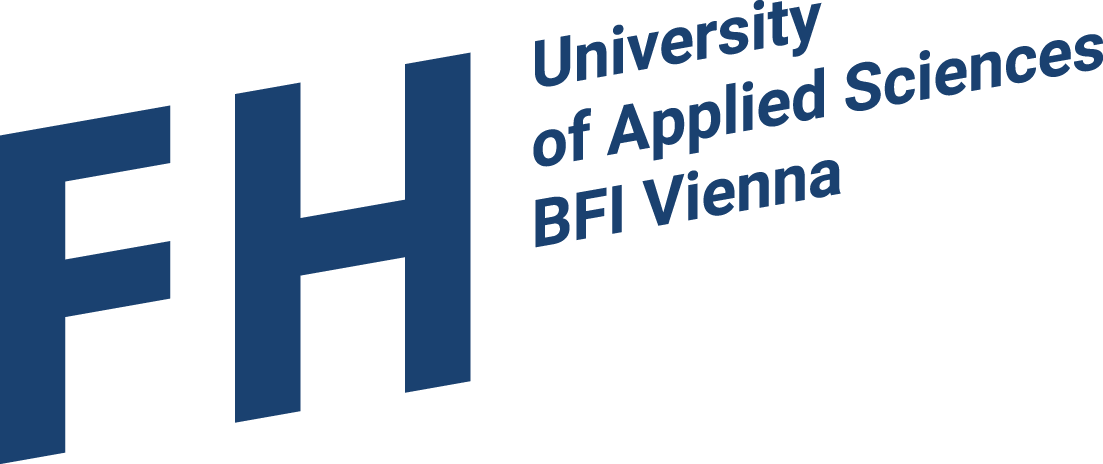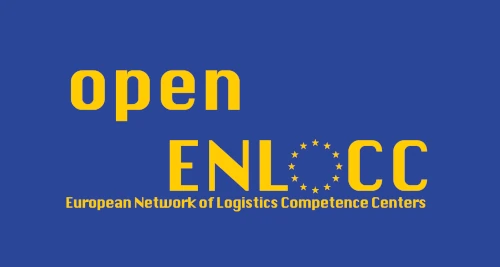Platformy i ośrodki innowacji
Platforma Transferu Wiedzy
Platforma Transferu Wiedzy (KTP) ma zasadnicze znaczenie dla rozwoju logistyki Alternatywnych Sieci Żywnościowych (AFN) w Europie Środkowej (CE).
AFN, zarówno mali, jak i średni rolnicy, często stają przed wyzwaniami logistycznymi ze względu na swój innowacyjny charakter. Przy braku ustrukturyzowanego wsparcia przekształcanie pomysłów w praktyczne rozwiązania staje się coraz trudniejsze.
Platforma ta odpowiada na zapotrzebowanie:
- Skuteczne strategie i działania w różnych krajach w celu wsparcia konkretnych operacji logistycznych AFN,
- Ułatwianie wymiany najlepszych praktyk oraz
- Przyspieszenie wdrażania rozwiązań logistycznych.
Główne cele KPT to:
- Przekazanie grupie docelowej wiedzy na temat rozwiązań logistycznych i modeli biznesowych w zakresie niedoborów zaopatrzenia.
- Pokazywanie AFN-ów z najlepszymi praktykami, aby ułatwić kontakt z nimi.
- Stymulowanie tworzenia nowej wiedzy i dzielenia się nowymi praktykami w zakresie krótkich łańcuchów dostaw żywności (SFSC).
- Stworzenie interaktywnej platformy, na której użytkownicy będą mogli angażować się w treści (kursy edukacyjne, certyfikaty itp.).
KPT zapewnia:
- Wgląd w modele biznesowe AFN, zwłaszcza te, które okazały się skuteczne i wydajne.
- Zrozumienie głównych cech i wyzwań związanych z krótkimi łańcuchami dostaw żywności (SFSC) i powiązanymi rozwiązaniami logistycznymi.
- Efektywne rozwiązania logistyczne, wykorzystywane przez zidentyfikowane najlepsze praktyki AFN, zebrane w trakcie trwania projektu, takie jak:
- systemy informatyczne,
- digitalizacja procesów logistycznych,
- zaawansowane zasady dostawy/zamawiania,
- konsolidacja dostaw,
- optymalizacja tras pojazdów,
- współużytkowanie zaplecza logistycznego,
- powszechne rozwiązania opakowaniowe,
- optymalizacja zużycia energii,
- inkluzywne modele biznesowe na rzecz systematycznej odporności oraz
- różne modele planowania, rozwoju i recyklingu.
Główne korzyści płynące z KPT to:
- Ulepszone dzielenie się wiedzą: Ułatwia transfer wiedzy i najlepszych praktyk logistycznych między AFN, badaczami, ekspertami biznesowymi i decydentami.
- Poprawa efektywności logistycznej: Dostarcza rozwiązania logistyczne, dostosowane do potrzeb AFN, poprawiając w ten sposób ich wydajność operacyjną i konkurencyjność.
- Wsparcie dla lokalnych producentów żywności: Bezpośrednio wspiera lokalnych producentów żywności i AFN, zapewniając dostęp do zaawansowanej wiedzy logistycznej i praktycznych rozwiązań.
- Zrównoważony rozwój i odporność: Promuje zrównoważone praktyki i integracyjne modele biznesowe.
- Współpraca ponadnarodowa: Zachęca do współpracy ponadnarodowej, umożliwiając w ten sposób wymianę pomysłów i współtworzenie innowacyjnych rozwiązań.
Platforma matchmakingowa
Rozwój alternatywnych sieci żywnościowych, definiowanych przez lokalne zaopatrzenie, zrównoważone praktyki i względy etyczne, uwypuklił potrzebę skutecznych sposobów łączenia kluczowych graczy w ramach tych sieci. Platforma matchmakingowa, opracowana w ramach projektu Food4CE, odpowiada na tę potrzebę, służąc w ten sposób jako wirtualny łącznik między rolnikami, konsumentami, dostawcami usług logistycznych i platformami internetowymi w sektorze alternatywnej żywności w celu poprawy wydajności logistyki.
Działając jako pośrednik we współpracy i innowacjach, platforma matchmakingowa łączy rolników, konsumentów, dostawców usług logistycznych i platformy internetowe. Sprzyja wymianie doświadczeń, ułatwia wspólne projekty oraz promuje rozwój nowych rozwiązań logistycznych i modeli biznesowych.
Platforma kojarzeń służy jako dynamiczne centrum, które łączy, wspiera i wzmacnia kluczowych graczy w alternatywnych sieciach spożywczych. Umożliwiając bezpośrednie połączenia, zapewniając bezproblemową logistykę i wykorzystując rynki internetowe, platforma wspiera dobrze prosperujący ekosystem. Za pośrednictwem platformy matchmakingowej rolnicy, konsumenci i szeroko pojęty przemysł spożywczy mogą wspólnie przyczynić się do bardziej zrównoważonego i sprawiedliwego systemu żywnościowego.
Centra innowacji
W ramach projektu Food4CE powstanie 5 regionalnych i 1 Transnarodowy Hub Innowacji (IH). Celem centrów innowacji jest zbliżenie podmiotów z różnych sektorów w celu rozwoju AFN w Europie Środkowej. Centra innowacji umożliwią transfer wiedzy między naukowcami, ekspertami biznesowymi, producentami żywności, operatorami logistycznymi i decydentami, tworząc w ten sposób unikalną wzajemną sieć wzajemnego wsparcia dla AFN z Europy Środkowej. Dzięki wsparciu OpenENLoCC huby innowacji będą nadal aktywne również po zakończeniu projektów. Część regionalnych ośrodków innowacji zostanie włączona do usług organizacji wspierających przedsiębiorstwa (agencje rozwoju regionalnego, izby rzemieślnicze, instytucje badawcze lub regionalne centra żywnościowe itp.).
Regionalne centra innowacji przyczynią się do osiągnięcia ogólnego celu, jakim jest promowanie transferu wiedzy, współtworzenie innowacji i wspieranie ulepszonych AFN w Europie Środkowej.
ORbITaLA (Słowenia)
ORbITaLA Innovation Hub (IH) to dynamiczna platforma zaprojektowana w celu sprostania niektórym z najpilniejszych wyzwań stojących przed alternatywnymi sieciami żywnościowymi (AFN) w Słowenii – cyfryzacji, zaawansowanej logistyki i transportu. Wspierając współpracę, innowacje i praktyczne rozwiązywanie problemów, centrum zapewnia interesariuszom narzędzia i wiedzę potrzebną do pokonania codziennych wyzwań związanych z dostarczaniem towarów do klientów.
Dzięki rzeczywistym przykładom najlepszych praktyk, rozwiązań dostosowanych do potrzeb i spersonalizowanego wsparcia, ORbITaLA skupia ekspertów z sektora logistycznego i badawczego w celu współpracy z alternatywnymi sieciami żywnościowymi (AFN), pracując nad skutecznym przezwyciężeniem tych wyzwań. Praktyczne warsztaty, sesje współtworzenia i usługi doradcze są sercem tego podejścia, zapewniając, że rozwiązania są nie tylko innowacyjne, ale także wykonalne i odpowiednie.
Centrum Innowacji ORbITaLA aspiruje do tego, aby stać się wiodącym centrum szkoleniowym i doradczym dla AFN w Słowenii, wspierając ich rozwój na każdym etapie rozwoju i torując drogę do bardziej zrównoważonej i wydajnej przyszłości w łańcuchach dostaw żywności.
Rada doradcza: Agencja Rozwoju Regionalnego Podravje – Maribor; Wydział Inżynierii Lądowej, Inżynierii Transportu i Architektury; Ministerstwo Rolnictwa, Leśnictwa i Żywności; Wydział Rolnictwa i Nauk Przyrodniczych; Izba Rolniczo-Leśna Słowenii (KGZS) – Instytut Rolnictwa i Leśnictwa w Mariborze; Spółdzielnia Dobrina; Poczta Słowenii.
Informacje kontaktowe
| Lider IH: | RDA Podravje Maribor |
| Adres: | Pobreška cesta 20, 2000 Maribor (Słowenia) |
| Typ: | Wirtualne i fizyczne |
| Godziny otwarcia: | Online: codziennie. Na żywo: środa, 8:00 – 13:00 |
| Dane kontaktowe: | mag. Danijela Kocuvan, danijela.kocuvan@rra-podravje.si |
Centrum innowacji (Austria)
Austrian Innovation Hub (IH) służy jako dynamiczna platforma łącząca różnych interesariuszy, umożliwiając im wspólne rozwiązywanie problemów i usprawnianie ich działalności poprzez interaktywne rozwiązywanie problemów. Procesy te są zintegrowane z platformą transferu wiedzy (KTP), zapewniając zgodność z szerszymi celami w zakresie innowacji i rozwoju.
Kluczowymi interesariuszami zaangażowanymi w projekt są instytucje szkolnictwa wyższego i badawcze, takie jak Forum Ernährung Heute, BOKU i austriacki sektor bezzałogowych statków powietrznych, a także innowacyjne MŚP i organizacje wspierające biznes, takie jak WKW. Ponadto centrum angażuje organy publiczne na wszystkich szczeblach, w tym podmioty lokalne, takie jak Stadtwerke, ich regionalne odpowiedniki i organy krajowe, takie jak Federalne Ministerstwo Działań w dziedzinie Klimatu, Środowiska, Energii, Mobilności, Innowacji i Technologii.
Wspierając współpracę między tymi sektorami, Austriackie Centrum Innowacji ma na celu stymulowanie zrównoważonych innowacji, wzmacnianie sieci interesariuszy i przyczynianie się do opracowywania rozwiązań mających wpływ na region.
Rada doradcza: UAS BFI Wiedeń; EKONSULTACJE; Izba Handlowa; Ministerstwo Federalne Republiki Austrii – Działania w dziedzinie klimatu, środowiska, energii, mobilności, innowacji i technologii.
Informacje kontaktowe
| Lider IH: | Uniwersytet Nauk Stosowanych BFI w Wiedniu (UAS BFI) |
| Adres: | Wohlmutstraße 22, 1020 Wien (Austria) |
| Typ: | Wirtualny |
| Godziny otwarcia: | Online: poniedziałek – czwartek, 10:00 – 16:00 |
| Dane kontaktowe: | David Strauß, David.Strauss@fh-vie.ac.at |
Localog (Włochy)
Localog Innovation Hub (IH) jest zaangażowany we wspieranie współpracy między Alternatywnymi Sieciami Żywnościowymi (AFN) i innymi interesariuszami w celu rozwoju zrównoważonego i odpornego regionalnego systemu żywnościowego. Jej główne cele obejmują zapewnienie ciągłego wsparcia dla AFN w miarę ich rozwoju i ewolucji, przy jednoczesnym ułatwianiu rozwoju wspólnych inicjatyw i innowacyjnych projektów, które przyczyniają się do długoterminowych zmian systemowych.
W początkowej fazie Centrum Innowacji będzie koncentrować się na identyfikowaniu konkretnych potrzeb AFN, tworzeniu środowiska opartego na zaufaniu i współpracy oraz oferowaniu szkoleń i wsparcia dostosowanego do ich potrzeb. Będzie pracować nad określeniem i promowaniem najlepszych praktyk i innowacyjnych rozwiązań, w szczególności w dziedzinie logistyki i modeli biznesowych, przy jednoczesnym zaangażowaniu zainteresowanych stron w procesie partycypacyjnym w celu opracowania kompleksowego regionalnego planu działania.
Patrząc w przyszłość, Centrum Innowacji przewiduje odgrywanie kluczowej roli w kształtowaniu wspólnej wizji zrównoważonego i odpornego systemu żywnościowego. Będzie nadal zapewniać specjalne wsparcie dla postępów AFN, pomagając im w pokonywaniu wyzwań i wykorzystywaniu możliwości. IH będzie również priorytetowo traktować projektowanie i wdrażanie wspólnych inicjatyw i projektów, które jeszcze bardziej wzmocnią regionalny ekosystem żywnościowy, zapewniając długoterminowy wpływ i zrównoważony rozwój.
Rada doradcza: Instytut Transportu i Logistyki – Bolonia; Urząd Miasta Bolonii; Dyrekcja Generalna ds. Rolnictwa / Dyrekcja Generalna ds. Mobilności – region Emilia-Romania; Food Hub Srl; CAAB Bolonia; Art-ER; Clust-ER Przemysł rolno-spożywczy.
Informacje kontaktowe
| Lider IH: | Fundacja Instytut Transportu i Logistyki (ITL) |
| Adres: | Viale Aldo Moro 38, Bolonia (Włochy) |
| Typ: | Wirtualne i fizyczne |
| Godziny otwarcia: | Online: poniedziałek – piątek, 10:00 – 17:00 |
| Dane kontaktowe: | Lorenzo Cello, lorenzo.cello@fondazioneitl.org |
FOOD4Health (Węgry)
FOOD4Health Innovation Hub (IH) jest zaangażowany w zwiększanie konkurencyjności producentów i przetwórców poprzez rozszerzanie ich możliwości rynkowych oraz wspieranie większej integracji, cyfryzacji i edukacji. Jej misją jest optymalizacja zarządzania produktami rolnymi w całym łańcuchu wartości żywności poprzez zaawansowane narzędzia cyfrowe i podejmowanie decyzji w oparciu o dane.
Hub będzie świadczył kompleksowy zakres usług, w tym rozwiązania w zakresie zarządzania danymi, automatyzacji i komunikacji. Wykorzystując te technologie, jego celem jest umożliwienie zainteresowanym stronom podejmowania świadomych, opartych na danych decyzji, napędzających wydajność i innowacje w całym sektorze rolno-spożywczym.
Rada doradcza: Instytut Nauk i Technologii Żywności; CIBUS Hungaricus; Ministerstwo Rolnictwa; Instytut Ekonomiki Rolnictwa; Węgierska Izba Rolnicza; SmileyMed Sp. z o.o.; Węgierskie Stowarzyszenie Logistyki, Zakupów i Zarządzania Zapasami
Informacje kontaktowe
| Lider IH: | Węgierski Uniwersytet Rolnictwa i Nauk Przyrodniczych (MATE) |
| Adres: | Villány út 29-43, H-1118 Budapeszt (Węgry) |
| Typ: | Wirtualne i fizyczne |
| Godziny otwarcia: | Online: codziennie Na żywo: piątek, 8:00 – 13:00 |
| Dane kontaktowe: | Géza Hitka, PhD, Hitka.geza@uni-mate.hu |
PULS Innovation Hub (Polska)
PULS Innovation Hub (IH) jest zaangażowany w napędzanie innowacji i zrównoważonego rozwoju w sektorze rolno-spożywczym poprzez rozwiązywanie kluczowych wyzwań i możliwości. Jej cele obejmują opracowywanie kompleksowych biznesplanów, przeprowadzanie analiz rentowności, optymalizację intensywności produkcji – zarówno zwiększanej, zmniejszającej, jak i przechodzącej na bardziej ekologiczne praktyki – oraz ocenę zrównoważonego rozwoju gospodarstw rolnych. Ponadto hub koncentruje się na ocenie i redukcji kosztów logistycznych w celu zwiększenia efektywności krótkich łańcuchów dostaw żywności.
Głównym celem centrum innowacji jest identyfikacja mocnych i słabych stron gospodarstw działających w krótkich łańcuchach dostaw żywności. Analizując tę dynamikę, hub dąży do poprawy ogólnej wydajności, wzmocnienia roli krótkich łańcuchów dostaw w sektorze rolno-spożywczym oraz zwiększenia ich konkurencyjności. Kluczowym priorytetem jest wspieranie większej integracji i współpracy między zainteresowanymi stronami zaangażowanymi w krótkie łańcuchy dostaw, tworząc bardziej spójny i odporny ekosystem.
Rada Programowa: PULS; L-DÓŁ; Centrum Doradztwa Rolniczego w Wielkopolsce; AgroIntegracja Sp z o.o.; Departament Rolnictwa i Rozwoju Wsi w Urzędzie Marszałkowskim Województwa Wielkopolskiego; Przedstawiciel Gospodarstw Doświadczalnych należących do PULS; Bank of Credit Agricole; CSCMP – Rada Specjalistów ds. Zarządzania Łańcuchem Dostaw; Fresh Logistics Polska; Najlepsze gospodarstwa.
Informacje kontaktowe
| Lider IH: | Uniwersytet Przyrodniczy w Poznaniu (PULS) |
| Adres: | Wojska Polskiego 28, 60-637 Poznań (Poland) |
| Typ: | Wirtualny |
| Godziny otwarcia: | Online: poniedziałek (12:00-14:00) i środa (10:00-12:00) |
| Dane kontaktowe: | Alina Nowotarska, alina.nowotarska@up.poznan.pl |
Food4CE TIH
Celem Transnational Innovation Hub jest ułatwienie wymiany wiedzy i wsparcia między krajami uczestniczącymi. Służąc jako platforma współpracy, umożliwi wymianę doświadczeń, najlepszych praktyk i potrzeb ponad granicami państw, zwiększając zbiorową wiedzę. Ponadto centrum będzie wspierać unikalną sieć wzajemnego wsparcia, zachęcając do współpracy między regionalnymi centrami z różnych krajów w celu sprostania wspólnym wyzwaniom, dzielenia się spostrzeżeniami i poprawy ogólnej funkcjonalności AFN w Europie Środkowej. Promując integrację i współpracę, centrum skupia interesariuszy z różnych krajów, wspierając szerszą perspektywę i przyjęcie innowacyjnych rozwiązań na skalę ponadnarodową.
Informacje kontaktowe
| TIH leader: | OPEN ENLoCC |
| Adres: | Avenue Louise 146, 1050 Bruxelles (Belgia) |
O projekcie i programie Interreg Europa Środkowa
Projekt Food4CE
Food4CE to europejski projekt, współfinansowany przez Program INTERREG Europa Środkowa, mający na celu wsparcie Alternatywnych Sieci Żywnościowych (AFN) w ich wysiłkach na rzecz stworzenia zrównoważonych i odpornych systemów zaopatrzenia w żywność. Sieci AFN odgrywają kluczową rolę w promowaniu krótkich łańcuchów dostaw żywności i zmniejszaniu śladu węglowego dystrybucji żywności. Pomimo swojego znaczenia, AFN stoją przed wyzwaniami, takimi jak ograniczona wiedza na temat współpracy logistycznej, cyfryzacja i wydajne systemy dostaw.
Innowacje na rzecz bardziej ekologicznej przyszłości
Food4CE zajmie się tymi wyzwaniami za pośrednictwem regionalnych i międzynarodowych centrów innowacji, jednoczących zróżnicowaną grupę ekspertów, w tym badaczy, liderów biznesu, producentów żywności, operatorów logistycznych i transportowych oraz decydentów. Wspólnie skupią się na zwiększeniu efektywności logistyki AFN poprzez tworzenie innowacyjnych narzędzi i rozwiązań.
Wsparcie polityczne
Oprócz innowacyjnych narzędzi, takich jak Matchmaking i Platforma Transferu Wiedzy, Food4CE zapewni również wspólnie opracowane regionalne plany działania dla każdego uczestniczącego regionu oraz transnarodowe (CE) wytyczne polityczne dotyczące wsparcia AFN.
Więcej informacji można znaleźć na naszej stronie internetowej projektu.
Partnerzy projektu
Uniwersytet w Mariborze będzie realizował działania ponadnarodowe, wspierając zaangażowanie wszystkich interesariuszy w ramach Food4CE. Będzie również rozwijać działalność badawczą i badawczą, przyczyniając się do opracowywania, wdrażania i monitorowania strategii i działań pilotażowych, które zgromadzą wiedzę, doświadczenie i dobre praktyki w dziedzinie operacji logistycznych dla AFN. Ponadto Uniwersytet w Mariborze będzie bezpośrednio wspierał RRA Podravje – Maribor we wdrażaniu konfiguracji Innovation Hub w celu transferu wiedzy logistycznej AFN i kojarzenia interesariuszy poprzez zapewnienie platformy do transferu wiedzy i kojarzenia logistycznego.
W ramach projektu Food4CE, RDA Podravje – Maribor będzie odpowiedzialna za opracowanie metodologii i wspieranie partnerów w tworzeniu regionalnych Centrów Innowacji i współtworzeniu ponadnarodowych Centrów Innowacji Dzięki swojej rozległej wiedzy i doświadczeniu w pracy z lokalnymi producentami, RRAPM będzie współtworzyć wydarzenia i działania, które pokażą rzeczywiste potrzeby i wyzwania związane z tworzeniem AFN, które zostaną następnie włączone do regionalnych planów działania na rzecz wsparcia AFN.
ITL zapewni niezbędne wsparcie dla ram kształtowania polityki i planowania strategicznego AFN. Po wstępnej fazie mapowania, klasyfikacji i współpracy z istniejącymi AFN i innymi odpowiednimi interesariuszami w regionie Emilia-Romania, ITL utworzy i będzie zarządzać regionalnym Centrum Innowacji. Celem tego centrum innowacji będzie zwiększenie kompetencji logistycznych AFN, wspieranie innowacyjnych rozwiązań opartych na współpracy, opracowanie wspólnych planów działania i wytycznych politycznych w celu wsparcia AFN.
Główną misją MATE jest wspieranie partnerów projektu ich wiedzą w dziedzinie rolnictwa poprzez koordynację identyfikacji i klasyfikacji istniejących AFN w Europie. Ponadto MATE stworzy i będzie zarządzać Centrum Innowacji oraz opracuje działanie pilotażowe na Węgrzech. MATE przyczyni się również do rozwoju Platformy Transferu Wiedzy oraz Platformy Matchmakingu.
Łukasiewicz-PIT pełni przekrojową i transnarodową rolę w projekcie Food4CE, przyczyniając się do analizy istniejących AFN-ów w Europie, ich charakterystyki i potrzeb, a także ich najlepszych praktyk logistycznych. L-PIT pomoże w stworzeniu ścieżki do ram planowania strategicznego oraz współtworzeniu regionalnego hubu innowacji w Polsce i jego pilotażowych działań.
Poprzez długofalową współpracę z producentami rolnymi i przetwórcami produktów rolnych, PULS zidentyfikuje i oceni poziom rozwoju AFN-ów w Polsce. Ponadto PULS będzie zarządzał Hubem Innowacji w Polsce oraz współtworzył ponadnarodową sieć hubów innowacji.
W ramach Food4CE, ECONSULT będzie prowadził proces mapowania rozwiązań logistycznych i najlepszych praktyk AFN. Dodatkowo, ECONSULT będzie wspierać partnerów projektu swoją wiedzą i doświadczeniem logistycznym w kilku innych zadaniach, w tym w metodologii mapowania najlepszych praktyk, rozwoju Platformy Transferu Wiedzy i Kojarzenia oraz w opracowaniu regionalnych planów działania na rzecz wsparcia AFN.
UAS BFI Wiedeń będzie kierował rozwojem Platformy Transferu Wiedzy (KTP). Jako lider działań będzie ściśle współpracować z Uniwersytetem w Mariborze w zakresie rozwoju i testowania KPT oraz jego wdrażania. Dodatkowo, UAS BFI Vienna stworzy i będzie zarządzać Innovation Hub w Wiedniu w ścisłej współpracy z ECONSULT. Wreszcie, BSP BFI będzie odgrywać kluczową rolę w identyfikacji i analizie AFN w Austrii, pomagając w zrozumieniu ich potrzeb logistycznych i najlepszych praktyk.
OPEN ENLoCC jest liderem działań upowszechniających i eksploatacyjnych projektów. Z tego powodu angażuje się we wszystkie działania mające na celu kapitalizację, komunikację, udostępnianie i wykorzystywanie wyników na obszarze Europy Środkowej. Bezpośrednio monitoruje wszystkie wyniki projektu, aby wspierać partnerów w kwestiach komunikacyjnych i dba o opracowanie konkretnych wyników z technicznego punktu widzenia dzięki wiedzy specjalistycznej regionalnych centrów kompetencji. Dodatkowo, w ramach projektu OPEN ENLoCC powstanie ponadnarodowy hub innowacji, w ramach którego zostaną włączone wszystkie regionalne centra innowacji.
Program Interreg Europa Środkowa
Interreg EUROPA ŚRODKOWA to program finansowania Unii Europejskiej, który wspiera współpracę transnarodową.
Interreg rozpoczął się jako mała inicjatywa transgraniczna w 1990 r. i przekształcił się w jeden z kluczowych instrumentów finansowania rozwoju regionalnego UE. W latach 2021-2027 około 10 mld EUR zostanie podzielone między prawie 100 programów Interreg w celu finansowania projektów współpracy, które przyczyniają się do silniejszej i lepszej Europy dla wszystkich.
Społeczność Interreg oferuje trzy rodzaje programów wspierających projekty europejskiej współpracy terytorialnej:
- Transgraniczne programy współpracy między co najmniej dwoma krajami, które mają tę samą granicę.
- Programy transnarodowe (takie jak Interreg EUROPA ŚRODKOWA) na rzecz współpracy między regionami z kilku krajów europejskich.
- Międzyregionalne programy współpracy w całej Europie.
Więcej informacji na temat Interreg Europa Środkowa można znaleźć odwiedzając strone internetową Programu.



